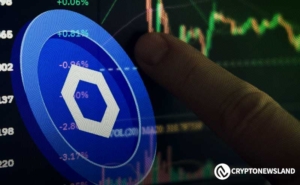Bitcoin Shows Resilience Above $60,500 as Inflation and Jobless Claims Rise: What Could This Mean for Investors?
- Bitcoin’s performance remains notable against the backdrop of rising core inflation and jobless claims.
- The recent inflation data shows signs of increasing pressure in the economy, impacting both consumer sentiment and investor behavior.
- “The resilience of Bitcoin amid fluctuating economic indicators highlights its evolving status as a digital asset,” analysts commented.
As inflation rates rise alongside jobless claims, Bitcoin’s stability above $60,000 signals its growing importance in the financial landscape.
Bitcoin Holds Steady Above $60,500 Despite Economic Turmoil
In a demonstration of remarkable stability, Bitcoin has maintained its position above $60,500 following the release of US inflation data. The core inflation rate for September surged to 3.3% year-over-year, exceeding expectations and raising concerns among economists and investors alike. This figure surpassed the 3.2% consensus estimate, reflecting persistent inflationary pressures that could affect economic policy-making. Monthly core inflation also rose by 0.3%, again outpacing the projected 0.2%. The broader inflation landscape indicates overall inflation has climbed 0.2% month-over-month, culminating in an annual rate of 2.4%, slightly surpassing the expected rate of 2.3% but reflecting a decrease from the previous month’s 2.5%.
Initial Jobless Claims Signal Potential Economic Softening
Compounding the implications of rising inflation, initial jobless claims for the week ending October 5 reached 258,000, significantly above the anticipated figure of 230,000. This data suggests potential softening in the labor market, potentially reshaping views on economic growth. The Consumer Price Index (CPI) has also increased to 315.30, exceeding the consensus estimate of 314.86. Bitcoin’s response to this economic data has been relatively muted, with a minor 0.7% decline following the news, settling around $60,700. Historically, Bitcoin has demonstrated resilience during significant economic data releases, a phenomenon witnessed back in September when it successfully hovered above the $60,000 mark despite pressing inflation concerns and a 50 basis point rate adjustment by the Federal Reserve.
The Impact of Inflation on Market Sentiment and Monetary Policy
The spike in inflation figures is poised to influence future market expectations regarding the Federal Reserve’s monetary policy trajectory. Analysts suggest that escalating core inflation may prompt a reevaluation of the pace of rate cuts that were initiated earlier this year. The juxtaposition of increasing jobless claims alongside rising inflation could indicate a shifting economic landscape, compelling both investors and policymakers to assess their strategies actively.
Bitcoin’s Role as an Inflation Hedge Under Review
With ongoing shifts in economic indicators, market analysts are examining how these dynamics might affect Bitcoin’s increasing status as a potential hedge against inflation. The consistency displayed by digital assets amidst the backdrop of fluctuating economic data implies that many investors had already priced in modest variations in inflation expectations. Various demographic changes, in conjunction with pressures in the housing market—such as the rise in Owners’ Equivalent Rent—continue to inflate broader economic indicators, further fueling discussions on Bitcoin’s position in an inflationary context.
Market Insights Amid Economic Developments
Recent trends reflect that Bitcoin is poised for critical reactions to high-stakes macroeconomic data, including inflation metrics, jobless claims, and budgetary adjustments. The substantial outflows from Bitcoin ETF, coupled with stagnant conditions in Ethereum, illustrate a cautious market sentiment. As investment strategies evolve, it remains vital for stakeholders to delineate the implications of rising inflation and jobless data on the crypto space, particularly Bitcoin.
Conclusion
In summary, Bitcoin’s ongoing stability in light of rising inflation and increasing jobless claims underscores its potential as a significant digital asset in today’s economic climate. As the market navigates varying economic indicators and reassesses its approaches to inflation and labor data, Bitcoin’s position will likely evolve, inviting further scrutiny and analysis in the broader financial narrative.
Disclaimer: The content of this article solely reflects the author's opinion and does not represent the platform in any capacity. This article is not intended to serve as a reference for making investment decisions.
You may also like
Fantom’s Solid Pattern of Higher Lows: What’s Next for FTM Price?

LINK’s Nearly 5% Daily Jump Sparks Optimism- Will LINK Reach $20 Soon?

Sonic Soars Over 6%—Can a Successful Breakout Send It Toward $1?

Solana’s Path to $3,800—Will It Hold Above $130 This Weekend?

